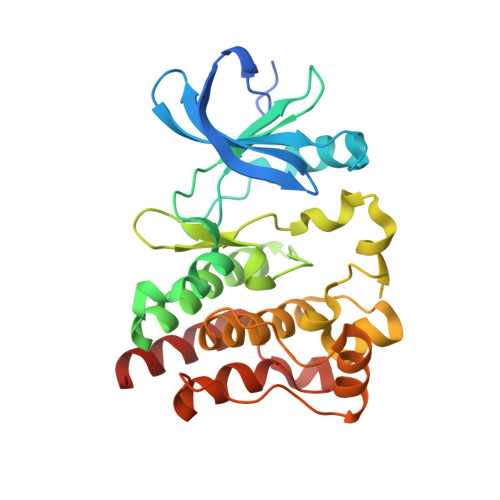Discovery of structural diverse reversible BTK inhibitors utilized to develop a novel in vivo CD69 and CD86 PK/PD mouse model.
Vandeveer, G.H., Arduini, R.M., Baker, D.P., Barry, K., Bohnert, T., Bowden-Verhoek, J.K., Conlon, P., Cullen, P.F., Guan, B., Jenkins, T.J., Liao, S.Y., Lin, L., Liu, Y.T., Marcotte, D., Mertsching, E., Metrick, C.M., Negrou, E., Powell, N., Scott, D., Silvian, L.F., Hopkins, B.T.(2023) Bioorg Med Chem Lett 80: 129108-129108
- PubMed: 36538993
- DOI: https://doi.org/10.1016/j.bmcl.2022.129108
- Primary Citation of Related Structures:
8FLG, 8FLH, 8FLV - PubMed Abstract:
For the past two decades, BTK a tyrosine kinase and member of the Tec family has been a drug target of significant interest due to its potential to selectively treat various B cell-mediated diseases such as CLL, MCL, RA, and MS. Owning to the challenges encountered in identifying drug candidates exhibiting the potency block B cell activation via BTK inhibition, the pharmaceutical industry has relied on the use of covalent/irreversible inhibitors to address this unmet medical need. Herein, we describe a medicinal chemistry campaign to identify structurally diverse reversible BTK inhibitors originating from HITS identified using a fragment base screen. The leads were optimized to improve the potency and in vivo ADME properties resulting in a structurally distinct chemical series used to develop and validate a novel in vivo CD69 and CD86 PD assay in rodents.
Organizational Affiliation:
Medicinal Chemistry, Cambridge, MA 02142, USA.
















